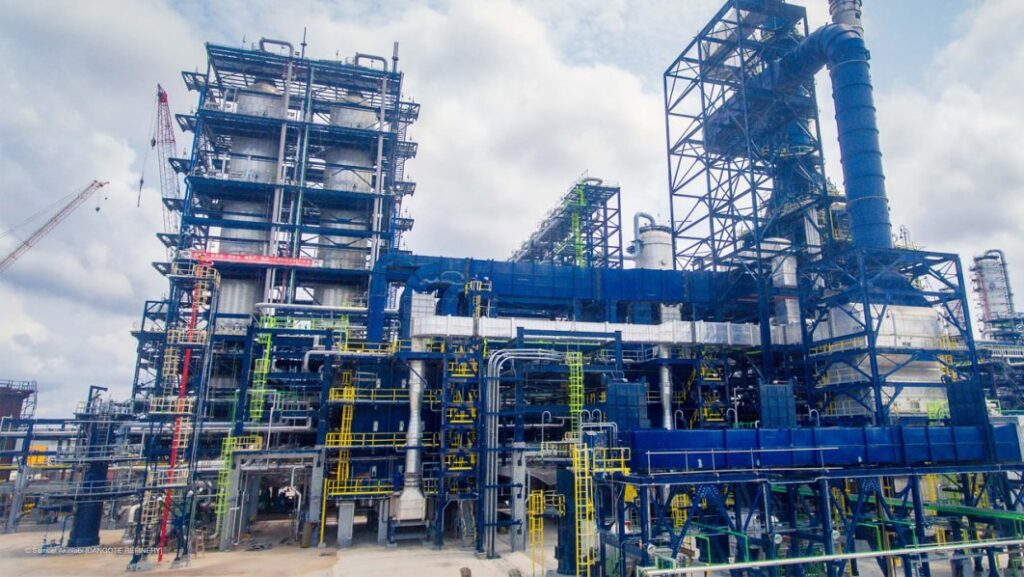As of August 5, 2025, the fortune of Aliko Dangote, President of the Dangote Group, has risen to $29.3 billion.
As of August 5, 2025, the net worth of Aliko Dangote, the President of the Dangote Group and Africa’s wealthiest individual, has surged to an impressive $29.3 billion, according to the latest report from the Bloomberg Billionaires Index. This remarkable increase in wealth positions Dangote as the 72nd richest person globally. He is at the helm of the Dangote Group, a vast conglomerate with diversified interests that include the Dangote Refinery, Dangote Cement, as well as businesses in sugar, salt, oil, fertilizer, and packaged foods.
Aliko Dangote’s Networth Grows
The report highlights that Dangote’s net worth has grown by approximately $1.23 billion year-to-date, reflecting a 4.4 percent rise since the beginning of 2025. His extensive portfolio of private assets includes $744 million in cash reserves, real estate valued at $148 million in Lagos, and oil assets from OML 71 and 72 estimated at $497 million. Additionally, Dangote owns Free Zone land worth $100 million and a fertiliser plant valued at $3.02 billion. The Dangote Industries companies contribute an estimated $160 million to his holdings, while the Dangote Petroleum Refinery—the largest oil refinery in Africa—accounts for $18.6 billion of his wealth.
On the public investment front, Dangote holds significant equity in several major Nigerian companies. His stake in Dangote Cement alone is valued at $5.54 billion. He also owns shares in Dangote Sugar valued at $357 million, United Bank for Africa (UBA) worth $484,000, and NASCON Allied Industries valued at $117 million. According to Bloomberg, Dangote’s industrial empire is anchored by the Dangote Oil Refinery, which began operations in early 2024 and is valued at $20 billion, reflecting the cost of its construction. The refinery is a crucial asset in his portfolio, with Dangote owning a 92.3 percent stake.

The fertiliser plant, capable of producing up to 2.8 million tonnes of urea annually, is another key asset. Its valuation is based on an independent analyst’s net present value calculation, assuming a 50 percent utilization rate. Many of Dangote Group’s companies are publicly listed on the Nigerian Stock Exchange, including Dangote Cement, the country’s largest cement producer where he holds an 86 percent stake. He also maintains significant interests in Dangote Sugar, Nascon Allied Industries, and UBA, with ownership distributed between direct holdings and shares via Dangote Industries, a subsidiary of the Dangote Group.
Aliko Dangote’s Assets
Besides his corporate ventures, Dangote owns several closely held businesses in sectors such as food manufacturing, agriculture, and packaging. These private enterprises are valued based on their investment costs, as detailed in the Dangote Group’s 2023 audited financial statements. The billionaire also owns six residential and commercial properties in Lagos, valued using the capitalization method, which takes into account rental income data provided by his spokesman, Anthony Chiejina, and capitalization rates from CBRE Broll Nigeria.
The valuation of Dangote’s cash holdings, denominated in both Nigerian naira and U.S. dollars, is based on information provided by Dangote himself in 2024. Despite Bloomberg’s valuation placing him 72nd globally, Forbes’ billionaire ranking lists Dangote as the 86th richest person in the world, with a net worth estimated at $24.8 billion.
Aliko Dangote’s Background
Born in Kano in 1957, Aliko Dangote experienced the loss of his father at the age of eight and was subsequently raised by his maternal grandfather, who was a trader in building materials. After completing his education at Egypt’s Al-Azhar University with a degree in business, Dangote returned to Nigeria and launched a cement trading business, initially funded by a loan from his uncle. He later relocated from Kano to Lagos, expanding his import operations significantly. In 1981, he founded the corporation that evolved into today’s Dangote Group.
Throughout the 1980s and 1990s, Dangote expanded his business interests to include sugar, flour, fish, rice, milk, and iron trading. A pivotal moment came in 1996 when he traveled to Brazil to study manufacturing processes, which inspired him to transition the company’s focus from trading to manufacturing. Dangote recognized an opportunity to meet Nigeria’s growing consumer needs through local production.
By 1999, he had begun constructing salt and sugar refineries, flour mills, and a pasta factory. The following year, Dangote acquired the Benue Cement Company from the Nigerian government. He then developed the Obajana Cement Plant, now the largest cement facility in sub-Saharan Africa. Today, the publicly traded entities within the Dangote Group—Dangote Cement, Dangote Sugar, and Nascon Allied Industries—represent about one-third of the Nigerian Stock Exchange’s total market capitalization. The Dangote Refinery, which took 11 years to plan and build, officially commenced operations in early 2024, marking a significant milestone for the company and for Africa’s industrial landscape, as reported by Bloomberg Billionaires Index.


